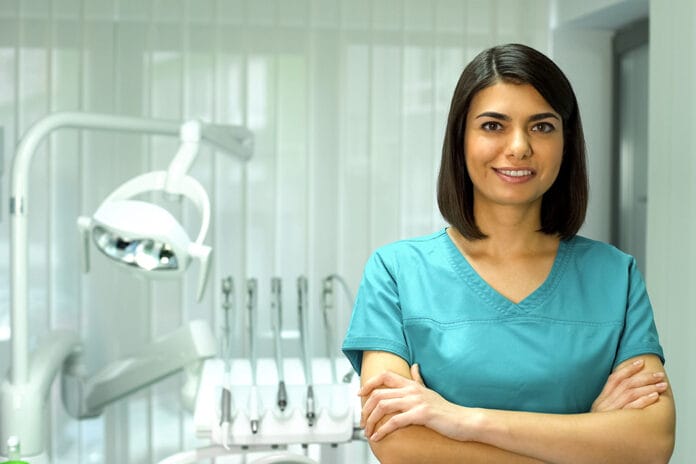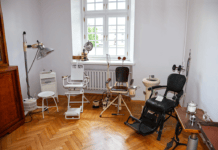Remember the argument that has been around for years about the working Mom vs. the stay-at-home Mom? It was utterly ridiculous − the whole idea of us vs. them. There shouldn’t be a debate about it, just like there shouldn’t be a debate regarding hygienists who are in the operatory or out and their value to the profession.
Engaging in any of these arguments is counterproductive, yet it happens ALL. THE. TIME. I have been on the receiving end of both the Mom argument and the in-or-out-of-the-op argument. When I temped, I heard, “You don’t get it because you only work here and there.” Now that I am not inside the op, some see me as having not as much value when I teach continuing education or giving an opinion about the procedures that happen inside an operatory.
Some of you may have heard, “Oh, she doesn’t work in the op anymore; she doesn’t understand.” Or, the dental sales camp may mutter, “I wish I could go back in the op where my day could end at five.”
How about clinician to clinician? “You don’t work corporate. You have it so easy.” Insert eye roll, and then an answer may be, “Sure, I have it super easy − no benefits, and we never run late.” I would think that this game goes around the nursing watercoolers and other industries too. The business of dentistry is freaking hard! Inside, outside, any side.
It’s similar to parenting. Stay at home, work outside the home, or both. It reminds me of what I heard way back when I didn’t have a child. My son didn’t enter my life until I was 36 years old, and I heard more than once, “You don’t understand. You don’t have kids.” Nice! Maybe not, but really?
Stop the snarky comments and rise above it, my comrades.
Enduring Value of Dental Career
I loved it to my core when I was kicking it inside the op − the people, the huge chunks of calculus, the hugs, the learning and developing. It can be back-breaking work, and I admire the ones who are still on the inside, especially these days when some clinicians are a little bit fearful while covered in gear. Dentistry is tough but also incredibly rewarding, whether in private practice, corporate practice, FQHCs (Federally Qualified Health Center), or volunteering.
There is also a time when clinicians decide for personal or professional reasons to leave clinical care. Their value in the world of dentistry does not end on that particular day.
There are some amazing consultants in dentistry who are either doing the job full-time or some who get their scrubs on occasionally. Their value has nothing to do with slinging a scaler. It depends upon the person and how skilled they are at consulting.
Granted, someone who has had only five minutes in the op and is trying to teach me about procedures and protocols may be a hard pill for me to swallow. But those are few and far between. Think about all the dental salespeople we have come across throughout the years who were never in an op. We give them respect because they know their product. Yes, they will never know our pain from the inside, but do they have to?
If a hygienist goes to dental school and sets down their scalers, what does that mean? Not a stinking thing. He or she is an asset to our industry.
Some clinicians are totally out, and some are out for a bit. Each one, though, is beneficial in their own unique way. Here is the crux of the article. What would we do without the ones who stepped out at least for a bit and are making our lives infinitely better?
An enormous amount of former clinical hygienists work in education. Teaching the future generations of hygienists is no easy task, yet many make it look so effortless. It isn’t easy dealing with very green students, but we should appreciate those that do. Continuing in the education frame are the hygienists who create continuing education courses and those that have built businesses that accredit and track the hours, which create platforms that make viewing a piece of cake.
I have to also give a shout out to the researchers. They perform work that gets very few accolades, but their research is necessary to elevate our profession.
What about the gear? Our peers are designing scrubs, caps, or face shields for us, and I very much appreciate it during these uncertain times.
We have a large group of creative hygienists that do podcasts, funny TikTok videos, or start Facebook pages that make us forget about the stresses of our daily lives. We can’t forget the writers. The creators of publications, innovators of digital platforms, designers of coloring books, and writers of textbooks who all bring us something extra to the industry.
A host of friends are helping in the ergonomic department, as well as the ones who relieve the stress of periodontal charting and suctioning. The worst task, in my opinion, is sharpening the instruments, and we have a group of peers who make that simple. From sharpening services to designing entire systems, they ease the pain. I, for one, am grateful.
Speaking of instruments, a few design new instruments that make our work easier and solve problems that had never been addressed before.
Currently, many hygienists are leaving clinical care, and that is a choice that makes them no less valuable as a contributor to the world of dentistry. I envision some in the future being the stellar lobbyist who changes our industry in ways we have never seen. Maybe they will be the one who puts oral health on the front cover of Time magazine.
Could a “former” clinical dental hygienist be the one that finds the causal relationship between periodontal disease and a number of systemic conditions? We have our personal reasons for everything we do, of course, and leaving clinical care is no different. This sounds so cheesy, but every one of us, no matter the choices we make, have value. Our walk may be different but important, nonetheless. Let’s hold each other up in grace and understanding, not with an undercurrent of bitterness. Quoting a little Otis Redding, “When she gets weary, try a little tenderness.”











